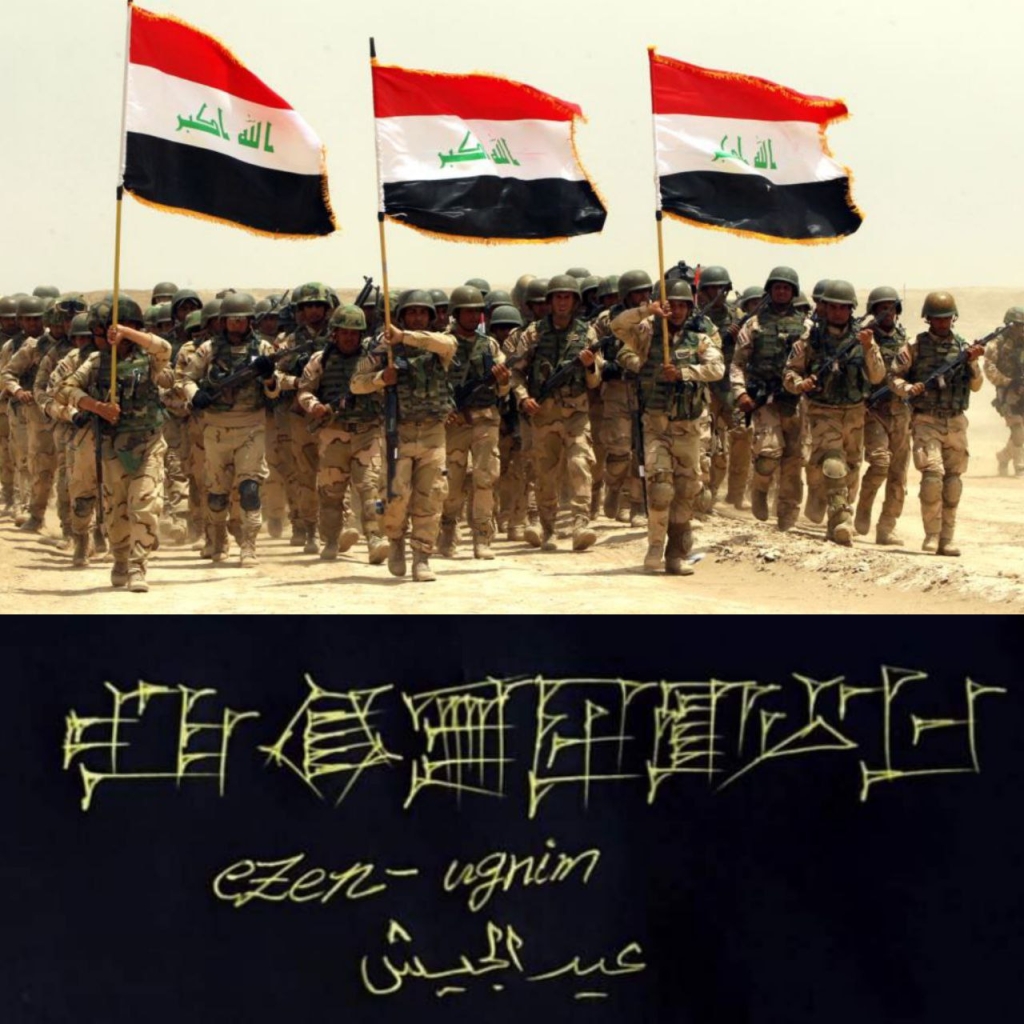The Kingdom of Iraq under British Administration, or Mandatory Iraq
was created in 1921, following the 1920 Iraqi Revolt against the proposed British Mandate of Mesopotamia, and enacted via the 1922 Anglo-Iraqi Treaty and a 1924 undertaking by the United Kingdom to the League of Nations to fulfil the role as Mandatory Power
Faisal ibn Husayn, who had been proclaimed King of Syria by a Syrian National Congress in Damascus in March 1920, was ejected by the French in July of the same year. Faisal was then granted by the British the territory of Iraq, to rule it as a kingdom, with the British Royal Air Force (RAF) retaining certain military control, but de facto, the territory remained under British administration until 1932
The civil government of postwar Iraq was headed originally by the High Commissioner, Sir Percy Cox, and his deputy, Colonel Arnold Wilson. British reprisals after the murder of a British officer in Najaf failed to restore order. The most striking problem facing the British was the growing anger of the nationalists, who continued to fight against the imposition of British authority. British administration had yet to be established in Iraqi Kurdistan.
The Iraqi revolt of 1920 was a watershed event in contemporary Iraqi history. For the first time, Sunnis and Shias, tribes and cities, were brought together in a common effort. In the opinion of Hanna Batatu, author of a seminal work on Iraq, the building of a nation-state in Iraq depended upon two major factors: the integration of Shias and Sunnis into the new body politic and the successful resolution of the age-old conflicts between the tribes and the riverine cities and among the tribes themselves over the food-producing flatlands of the Tigris and the Euphrates. The 1920 rebellion brought these groups together, if only briefly; this constituted an important first step in the long and arduous process of forging a nation-state out of Iraq’s conflict-ridden social structure. The Assyrian Levies, a military force under British command, participated in the Kirkuk Massacre of 1924 of Kurds, Arabs, and Turkomen. (See Simele Massacres of 1933)
Coronation of Faisal
At the Cairo Conference of March 1921, the British set the parameters for Iraqi political life that were to continue until the 1958 revolution; they chose a Hashemite, Faisal ibn Husayn, son of Sherif Hussein ibn Ali former Sharif of Mecca as Iraq’s first King; they established an Iraqi army (but kept Iraq Levies under direct British command); and they proposed a new treaty. To confirm Faisal as Iraq’s first monarch, a one-question plebiscite was carefully arranged that had a return of 96 percent in his favor. The British saw in Faisal a leader who possessed sufficient nationalist and Islamic credentials to have broad appeal, but who also was vulnerable enough to remain dependent on their support. Faisal traced his descent from the family of the Prophet Muhammad. His ancestors held political authority in the holy cities of Mecca and Medina since the 10th century. The British believed these credentials would satisfy traditional Arab standards of political legitimacy; moreover, the British thought Faisal would be accepted by the growing Iraqi nationalist movement because of his role in the 1916 Arab Revolt against the Turks, his achievements as a leader of the Iraq emancipation movement, and his general leadership qualities. Faisal was instated as the Monarch of Iraq after the Naquib of Baghdad was disqualified as being too old (80 yrs) and Sayid Talib (a prominent Iraqi from the province of Basra) was deported on trumped up charges by the British. The voting was far from a reflection of the true feelings of the Iraqi people. Nevertheless, Faisal was considered the most effective choice for the throne by the British government
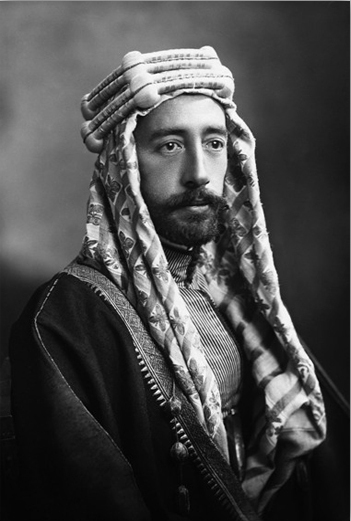
Faisal I bin Al-Hussein bin Ali Al-Hashemi
King of Iraq from 23 August 1921 until his death in 1933. A member of the Hashemite family, he was a leader of the Great Arab Revolt during the First World War, and ruled as the unrecognized King of the Arab Kingdom of Syria from March to July 1920 when he was expelled by the French.
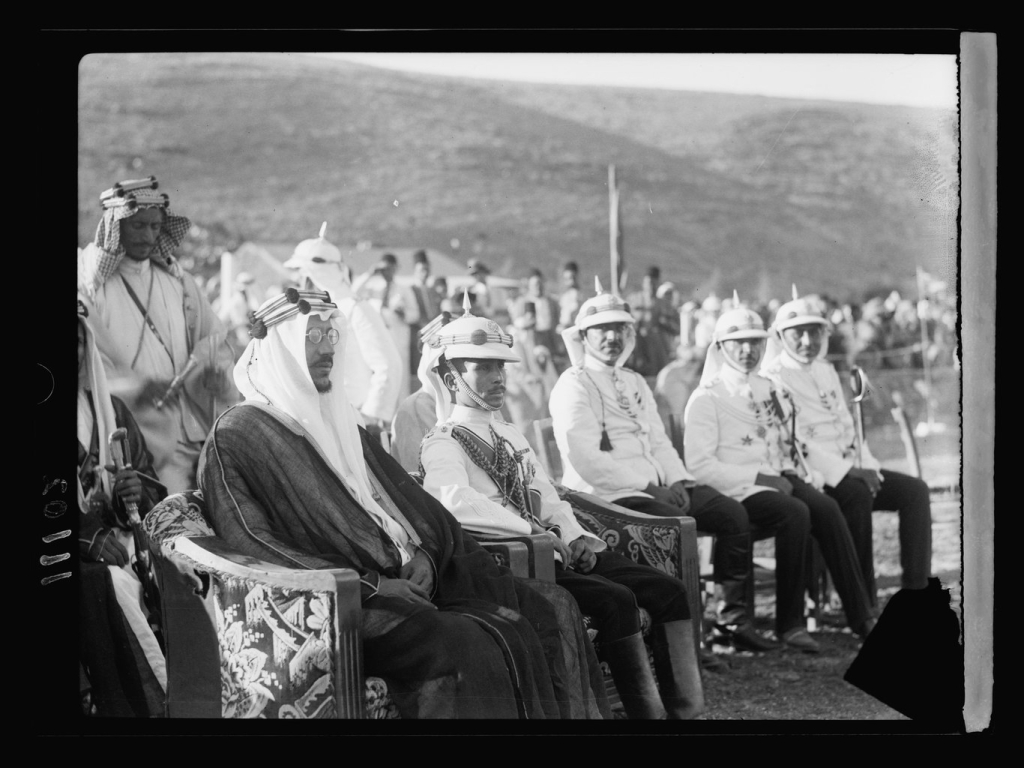
Ghazi of Iraq
was King of Iraq from 1933 to 1939 having been briefly Crown Prince of the Kingdom of Syria in 1920. He was born in Mecca, the only son of Faisal I.He died in a car crash in 1939.
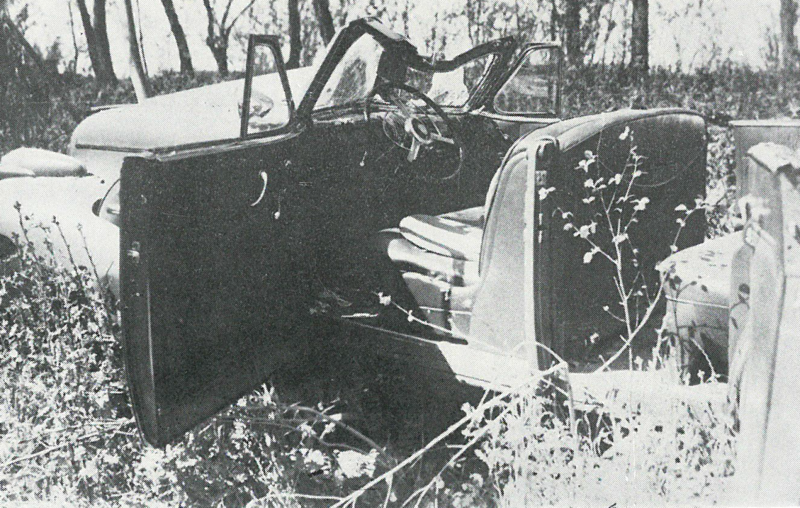
Ghazi’s vehicle after accident.
Death
King Ghazi died in April 1939 in an accident involving a sports car that he was driving.
Faisal, Ghazi’s only son, succeeded him as King Faisal II. Because Faisal was underage, Prince Abdul Ilah served as regent until 1953.
Second Kingdom of Iraq
As for the second era – or the second Iraqi kingdom, it is represented in the post-departure phase of the British forces, which began with the formation of Nuri Al-Said Pasha for his ministry, who is known for his skill, his patriotism, his love for Iraq and his loyalty to the Hashemite royal family, determined to establish an alliance that includes the regent His Highness Prince Abdul Ilah Al-Hashemi and some centers of power of ministers and personalities representing different sects and races.
Iraq’s independence on the third of October 1932 Iraq gained its independence, and the country was transferred from a British mandate territory to the 57th country in the world, with full independence and powers in accordance with international law. Iraq remained 12 years of mandate submission from 1920 until independence on this day.
Faisal II
was the last King of Iraq. He reigned from 4 April 1939 until July 1958, when he was killed during the 14 July Revolution. This regicide marked the end of the thirty-seven-year-old Hashemite monarchy in Iraq, which then became a republic.
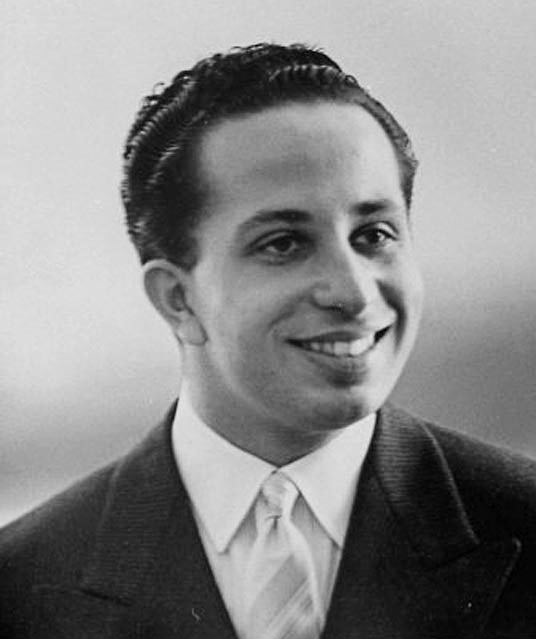
Faisal II
The only son of King Ghazi and Queen Aliya of Iraq, Faisal acceded to the throne at the age of three after his father was killed in a car crash. A regency was set up under his uncle Prince ‘Abd al-Ilah
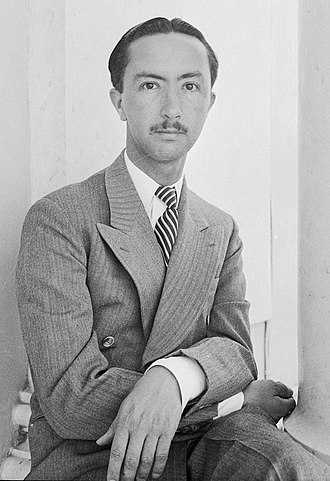
Abd al-Ilah of Hejaz,
14 November 1913 – 14 July 1958) was a cousin and brother-in-law of King Ghazi of the Hashemite Kingdom of Iraq and was regent for his nephew King Faisal II, from 4 April 1939 to 23 May 1953, when Faisal came of age. Abd al-Ilah also held the title of Crown Prince of Iraq from 1943 to 1953.
Abd al-Ilah was killed along with the rest of the Iraqi royal family in the 14 July Revolution in 1958 that ended the Hashemite monarchy in Iraq. His body was mutilated, dragged across the streets of Baghdad, and eventually burn
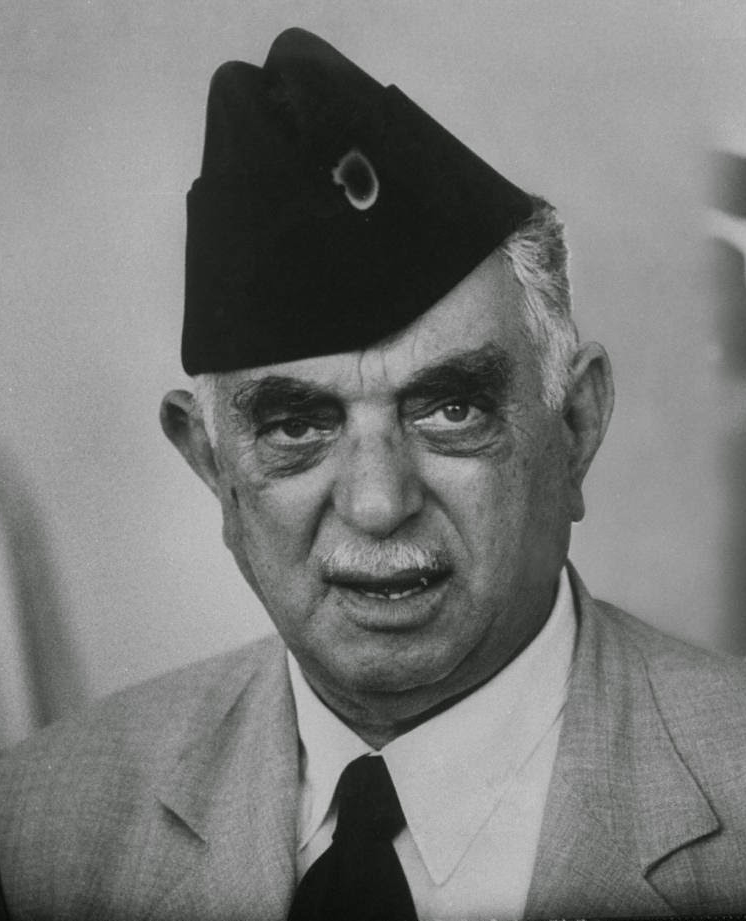
Nuri Pasha al-Said
December 1888 – 15 July 1958) was an Iraqi politician during the Mandatory Iraq and the Hashemite Kingdom of Iraq. He held various key cabinet positions and served eight terms as the Prime Minister of Iraq.
From his first appointment as prime minister under the British Mandate in 1930, Nuri was a major political figure in Iraq under the monarchy. The 1930 Anglo-Iraqi Treaty granted Britain permanent military prerogatives in Iraq, but also paved the way for the country’s nominal independence and entry as a member of the League of Nations in 1932. Nuri was forced to flee the country after the 1941 Iraqi coup d’état which brought a pro-Nazi government to power, but following a British-led intervention he was re-installed as prime minister.
.
First Republic
The Iraqi Republic was a state forged in 1958 under the rule of President Muhammad Najib ar-Ruba’i and Prime Minister Abd al-Karim Qasim. ar-Ruba’i and Qasim first came to power through the 14 July Revolution in which the Kingdom of Iraq’s Hashemite dynasty was overthrown. As a result, the Kingdom and the Arab Federation were dissolved and the Iraqi republic established. Arab nationalists later took power and overthrew Qasim in the Ramadan Revolution in February 1963, and then Nasserists consolidated their power after another coup in November 1963. The era ended with the Ba’athist rise to power in a coup in July 1968.
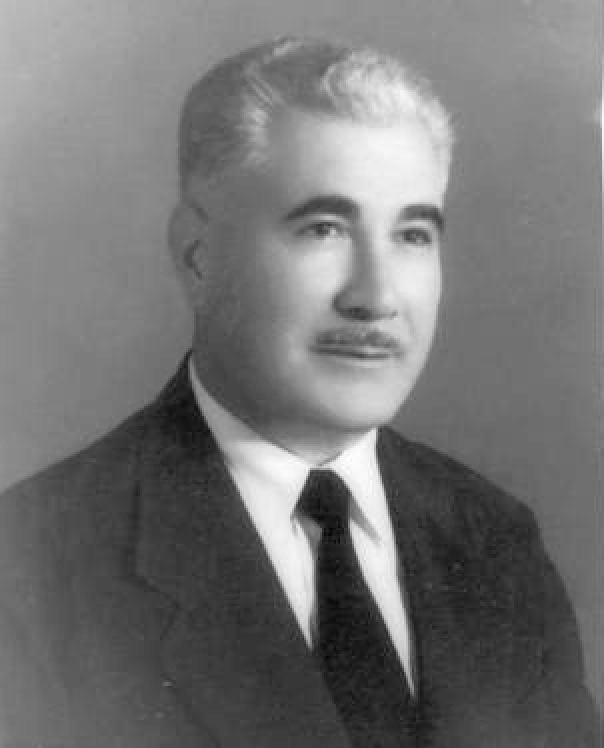
Muhammad Najib ar-Ruba’i (1904–1965)
was the first president of Iraq (Chairman of Sovereignty Council), from 14 July 1958 to 8 February 1963.Together with Abdul Karim Qassim he was one of the leaders of the 14 July Revolution that toppled King Faisal II in 1958.
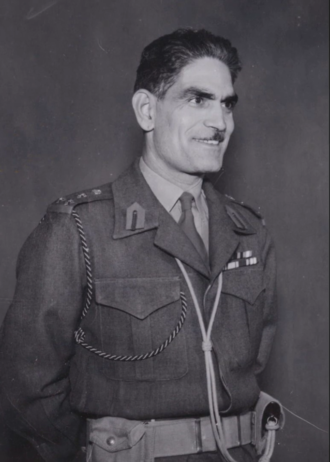
Abdul-Karim Qasim Muhammad Bakr al-Fadhli al-Zubaidi
21 November 1914 – 9 February 1963) was an Iraqi military officer and nationalist who came to power in 1958 when the Iraqi monarchy was overthrown during the 14 July Revolution. He ruled the country as the prime minister until his downfall and execution during the 1963 Ramadan Revolution.
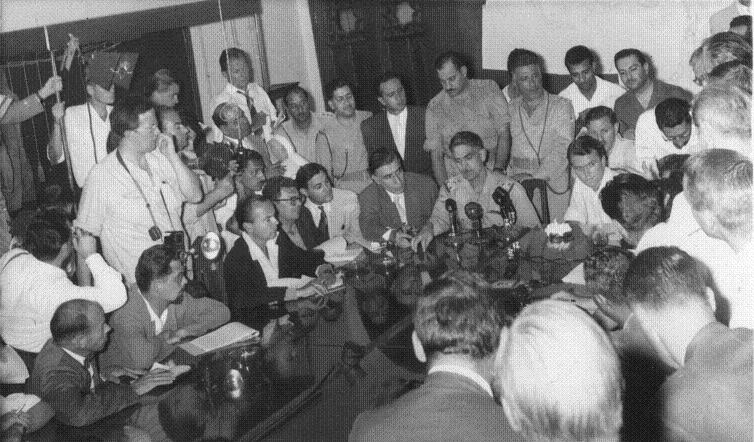
A press conference on the first day of the July 14, 1958
July 14, 1958: The monarchy is overthrown in a military coup, the declaration of a republic in Iraq and the leader Abdul Karim Qasim He assumes the premiership.
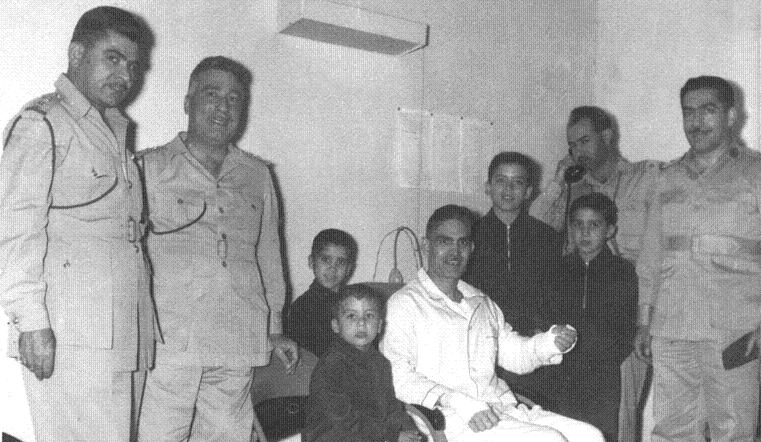
February 1963: Qasim is overthrown in a coup d’état by the Baath Party along with other officers and Colonel Abd al-Salam Arif becomes president
November 18, 1963: Aref and a group of officers overthrow the Baath government.
April/17 April 1966: After Arif was killed in a helicopter crash in Basra on 13 April, his brother, officer Abdul Rahman Muhammad Arif, succeeds him as president
February 1963: Qasim is overthrown in a Baath Party coup with other officers and Colonel Abd al-Salam Arif becomes president.
November 18, 1963: Aref and a group of officers overthrow the Baath government.
April 17, 1966: After Arif was killed in a helicopter crash in Basra on April 13, his brother Al-Dab
Second Republican Era

July 17, 1968: A coup coordinated between the Baath Party and officers close to Aref overthrows him and officer Ahmad Hassan al-Bakr is appointed president.
July 30: The Baath Party announces an “internal movement” in which it expels elements from outside it who participated in the overthrow of Abdul Rahman Aref.
March 11, 1970: The Revolutionary Command Council and Mullah Mustafa Barzani, leader of the Kurdistan Democratic Party, sign a peace agreement.
1972: Signing of a 15-year friendship and cooperation agreement between Iraq and the Soviet Union.
1972: Nationalization of the Iraqi Oil Company.
1974: Iraq grants limited autonomy to the Kurds in implementation of the 1970 agreement, but the KDP rejects this.
March 1975: Iraq and Iran sign a treaty to end
July 16, 1979: President al-Bakr steps down and is succeeded by Vice President Saddam Hussein.
Iran-Iraq War
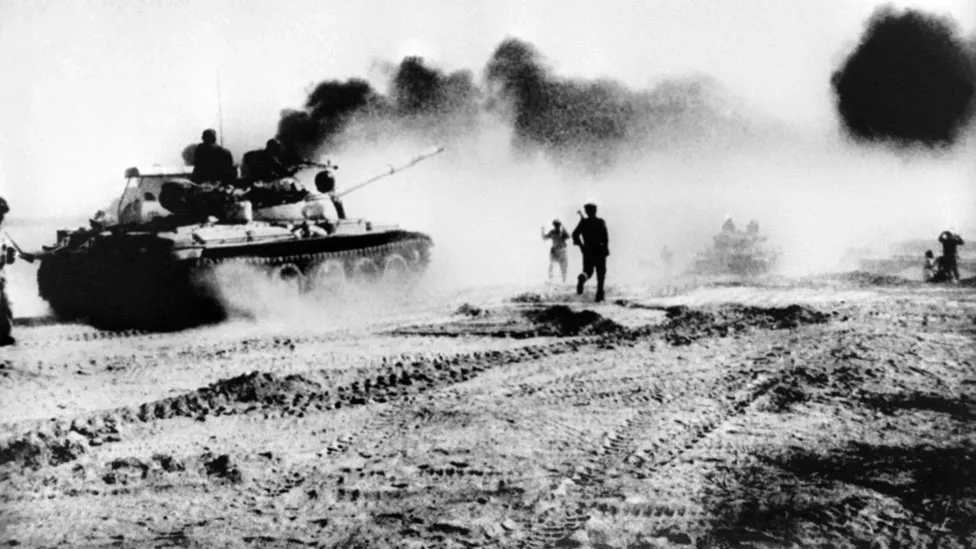
September 22, 1980: The beginning of the Iran-Iraq war
June 7, 1981: Israel attacks an Iraqi nuclear research center in Tuwaitha, near Baghdad.
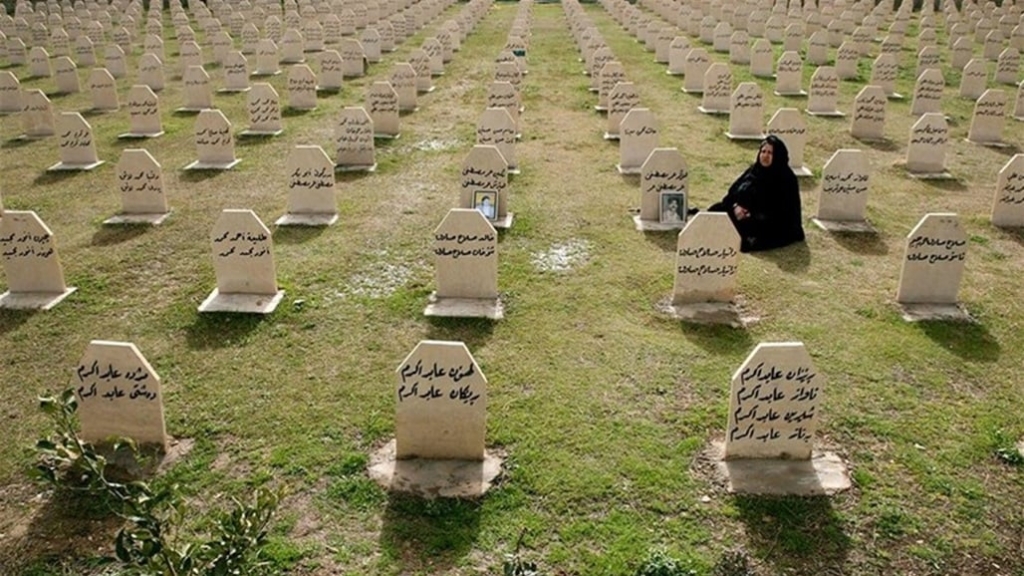
March 16, 1988: bombed the Kurdish town of Halabja with chemical weapons.
August 20, 1988: Implementation of the ceasefire under the supervision of the United Nations Iraqi-Iranian Military Observation Group.
Iraq’s Kuwait War
August 2, 1990:
August 6, 1990: Economic sanctions imposed on Iraq under the Security Council resolution number 661
November 29, 1990: The Security Council issues Resolution 678, authorizing countries cooperating with Kuwait to use all necessary means to implement Resolution 660.
January 16-17, 1991: The Gulf War begins with aerial bombardment against Iraq by coalition forces in “Operation Desert Storm.”
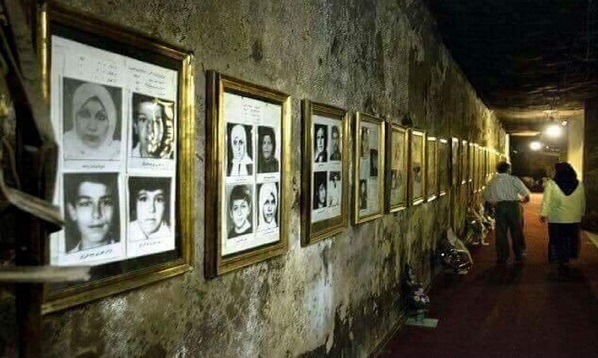
February/February 13, 1991: U.S. aircraft destroy the Amiriya shelter in Baghdad, killing more than 300 people.
February 24 / February 24, 1991: Ground operations leading to the liberation of Kuwait begin on February 27
Hold your fire
March 3, 1991:
Mid-March 1991: A massive uprising broke out in the south and north against the rule and managed to control large parts of the country, but Saddam’s forces were able to use various types of weapons to suppress the southern uprising.
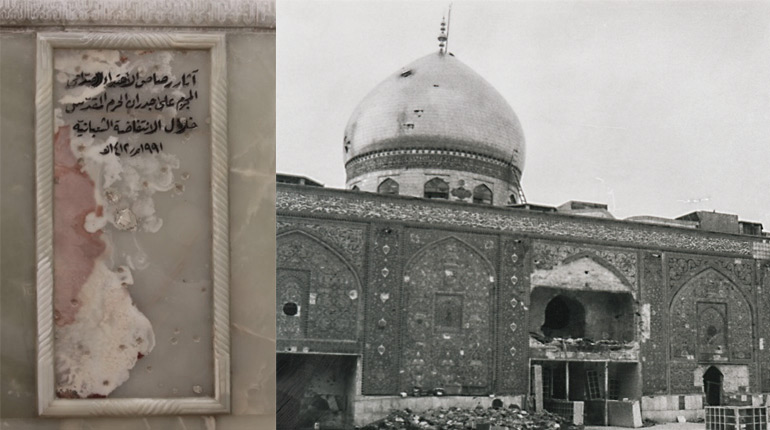
On March 11, 1991, Hussein Kamel ordered the bombing of the holy city of Karbala with a barrage of missiles that targeted the honorable dome of the shrine of Imam Hussein, as well as the dome of the shrine of Abi al-Fadl al-Abbas, the shrine of the right hand of al-Abbas, and the residential houses around it.
April 8, 1991: An EU meeting ratifies a plan to establish a UN safe haven in Iraq to protect the Kurds, and the United States orders on April 10 an end to all military activities in this area.
August 26, 1992: Determination of the no-fly zone that Iraqi aircraft are not allowed to enter in northern and southern Iraq
November 10, 1994: The Iraqi National Council (parliament) recognizes Kuwait’s borders and independence.
April 14, 1995: United Nations Security Council Resolution 986 allows for the partial resumption of Iraqi oil exports for the purchase of food and medicine under the “oil-for-food” program, which Iraq did not accept until May 1996 and was not implemented until December 1996.

August 1995: Hussein Kamel, Saddam’s son-in-law, his brother and their families leave Iraq and seek asylum in Jordan.
August 31, 1996: Iraqi forces attack the no-fly zone in the north and occupy Erbil after an appeal for help from the Kurdistan Democratic Party (KDP) led by Massoud Barzani in its conflict with the Patriotic Union of Kurdistan (PUK) led by Jalal Talabani.
September 3, 1996: The United States expands the northern boundary of the southern no-fly zone by 33 degrees to the north.
December 12, 1996: Saddam Hussein’s eldest son, Uday, is seriously wounded in an assassination attempt in Baghdad.
October 31, 1998: Iraq terminates cooperation with UNSCOM
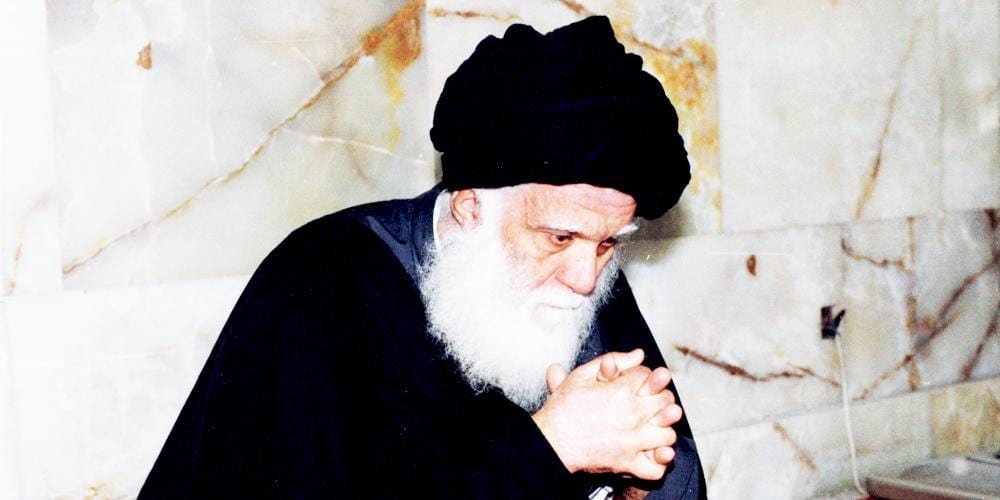
February 19, 1999: Grand Ayatollah Muhammad Sadiq al-Sadr, the spiritual leader of many Iraqis, is martyred in Najaf.
December 17, 1999: The Monitoring, Investigation and Inspection Commission is formed under UN Security Council Resolution 1284, and Iraq rejects the resolution.
February 2001: Britain and the United States launch airstrikes in an attempt to destabilize Iraq’s air defense network, which has received little international support.
May 2001: Qusay Saddam is elected to a leadership committee in the ruling Baath Party, prompting speculation that he will succeed his father.
April 2002: Baghdad suspends oil exports in protest of Israeli attacks on Palestinian areas. Despite Saddam Hussein’s calls, they did not
September 2002: U.S. President George W. Bush asks skeptical world leaders at a session of the United Nations General Assembly to face the “grave and cumulative danger” to Iraq or step aside for the United States to act. That same month, British Prime Minister Tony Blair will publish a dossier on Iraq’s military capabilities.
November 2002: UN weapons inspectors return to Iraq under a UN resolution threatening Iraq with serious consequences for violating the resolution.
March 2003: Senior
The most prominent events from 2003 to 2024
Overthrow of Saddam
March 17, 2003: Britain’s ambassador to the United Nations says that diplomatic paths with Iraq have ended, and the evacuation of UN inspectors from Iraq and President Bush gives Saddam Hussein a 48-hour deadline to leave Iraq or face war.
March 20, 2003: American missiles bombed targets in Baghdad, marking the beginning of the war led by the United States to overthrow Saddam Hussein. In the following days, American and British forces entered Iraq from the south through Kuwait.
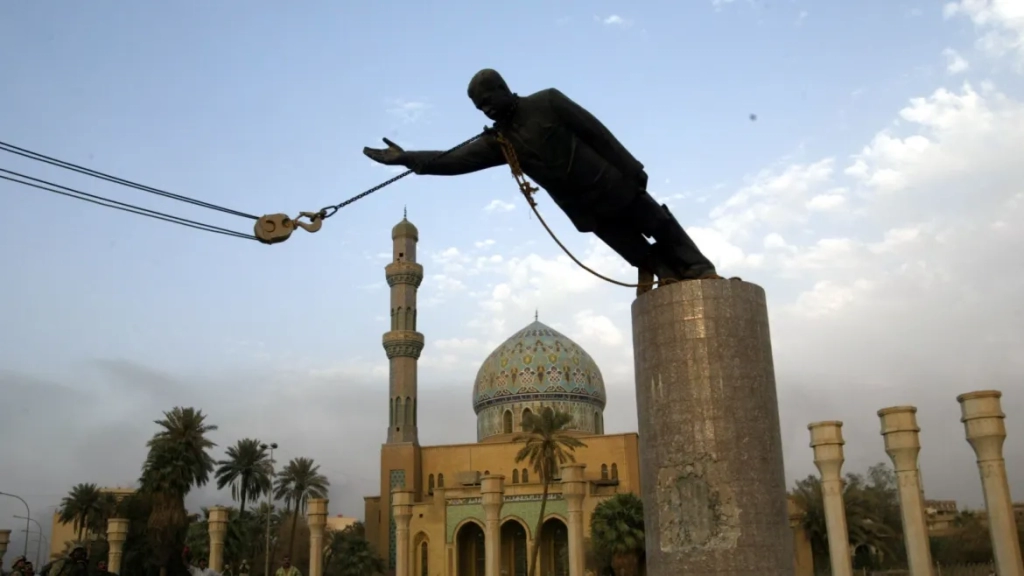
April 9, 2003: American forces advance towards central Baghdad, and the same day witnesses the demolition of the statue of Saddam Hussein in central Baghdad. In the following days, Kurdish fighters and American forces took control of the northern cities of Kirkuk and Mosul, and major looting occurred in Baghdad and other Iraqi cities.
April 2003: The United States draws up a list of 55 people wanted by the former regime, and Tariq Aziz, the former Iraqi deputy prime minister, is arrested.
May 2003: The United Nations Security Council ratifies a resolution supporting the US-led administration and lifts economic sanctions, and the American ruler of Iraq dissolves the Baath Party and the institutions of the former regime.
July 2003: The first meeting of the Transitional Governing Council appointed by the United States. The commander of the American forces says that his forces are facing a simple guerrilla war. Saddam’s two sons, Qusay and Uday, are killed in an armed battle in Mosul.
Intensification of guerrilla warfare
August 2003: A bomb attack on the Jordanian embassy in Baghdad, killing 11 people, and an attack on the United Nations headquarters in Baghdad, killing 22 people, including the UN envoy, and the arrest of Ali Hassan al-Majid, Saddam Hussein’s cousin, known as Chemical Ali, and the death of 125 people in a car explosion. Mined in Najaf, among them is Ayatollah Muhammad Baqir al-Hakim.
October 2003: The UN Security Council ratifies a resolution that gives legitimacy to the American occupation of Iraq and confirms the early transfer of power to the Iraqis.
October 2003: Dozens were killed in explosions in Baghdad, including an attack on the Red Cross office.
November 2003: The security situation deteriorated, and six months after the US President announced the end of military operations in Iraq, specifically in November, the number of American deaths in Iraq exceeded the number of deaths during the war. Within one month, 105 soldiers from the coalition forces were killed.
December 14, 2003: Saddam Hussein was arrested in Tikrit.
February 2004: More than 100 people were killed in Erbil in twin attacks on the offices of the main Kurdish parties.
March 2004: The Governing Council approved an interim constitution for the country after lengthy negotiations and sharp disagreements over the role of Islam and Kurdish demands for autonomy, and the martyrdom of 140 people in organized attacks on gatherings during the commemoration of Ashura.
April and May 2004: The Mahdi Army of Sayyed Muqtada al-Sadr launches attacks on the occupation forces, reports of the killing of hundreds in the fighting between the American army that besieged the city of Fallujah, leaked pictures of violations against Iraqi prisoners at the hands of American forces, and the martyrdom of the head of the Governing Council, Izz al-Din. Salim in an explosion outside the coalition headquarters in Baghdad.
June 1, 2004: Governing Council candidates Iyad Allawi and Ghazi Al-Yawar take the oath, with Allawi becoming prime minister and Al-Yawar president of the country.
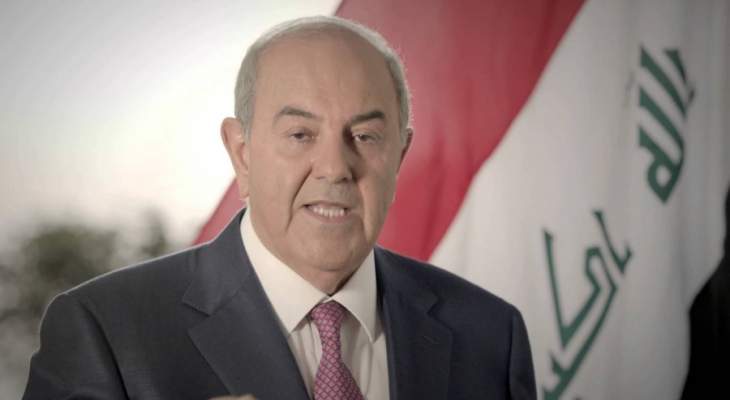
Sovereignty and elections
June 2004: States
It restores sovereignty to the interim Iraqi government headed by Iyad Allawi.
August 2004: Fighting erupts in Najaf between US-led forces and the Mahdi Army led by cleric Muqtada al-Sadr.
November 2004: A major US-led attack on militants in the city of Fallujah.
January 30, 2005: About 8 million Iraqi voters vote to establish a transitional national assembly.
February 28, 2008: At least 114 people were killed by a car bomb in the city of Hilla, south of Baghdad, in the worst incident since the US-led invasion.
April 2005: The Iraqi Parliament elects Jalal Talabani as President of Iraq and Ibrahim al-Jaafari as Prime Minister of Iraq in light of escalating violence.
May 2005 onwards: An increase in car bombs, bomb explosions, and shooting incidents: The relevant ministries put the number of martyrs during the month of May at 672 people, which is higher than the number of martyrs during the month of April, which was 364 martyrs.
June 2005: Masoud Barzani is sworn in as President of the Iraqi Kurdistan Region.
August 2005: Shiite and Kurdish negotiators ratify the draft constitution while Sunni negotiators reject it.
October 2005: Voters approve a new constitution aimed at creating a federal democratic system based on Islamic principles in Iraq.
December 2005: Iraqis vote in general elections to establish the first Iraqi government with a full mandate. They also vote to form the first Iraqi parliament since the invasion led by American forces.
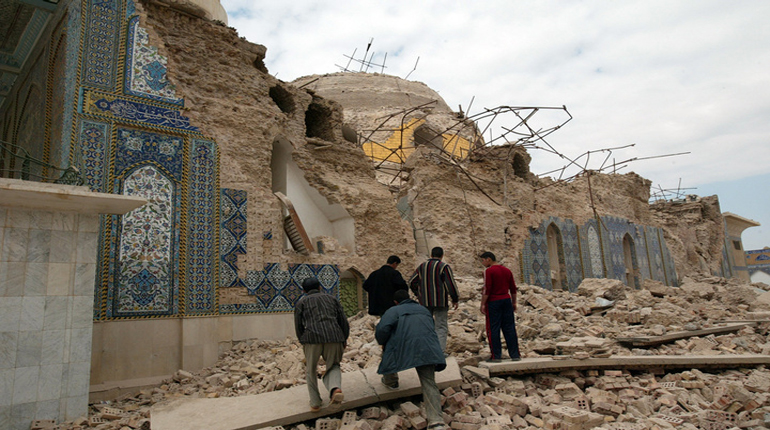
February 2006 : Bombing of the Shrine of the Askari Imams in the city of Samarra
April 22, 2006: Talabani, who was newly re-elected as President of Iraq, tasked Nouri al-Maliki with forming a new government to end the political stalemate that had lasted for months.
May and June 2006: More than 100 people were killed a day in violence in Iraq, according to the United Nations.
June 7, 2006: Al-Qaeda in (Iraq) leader Musab al-Zarqawi was killed in an air strike.
November 2006: Iraq and Syria resume their diplomatic relations after a rupture that lasted nearly a quarter of a century.
More than 200 people were killed in Sadr City, Baghdad, in the worst attack the capital has witnessed since the invasion led by American forces in 2003.
December 2006: The Iraq Study Group says it has made recommendations to US President George Bush regarding the future of politics in Iraq, describing the situation as dangerous and deteriorating.
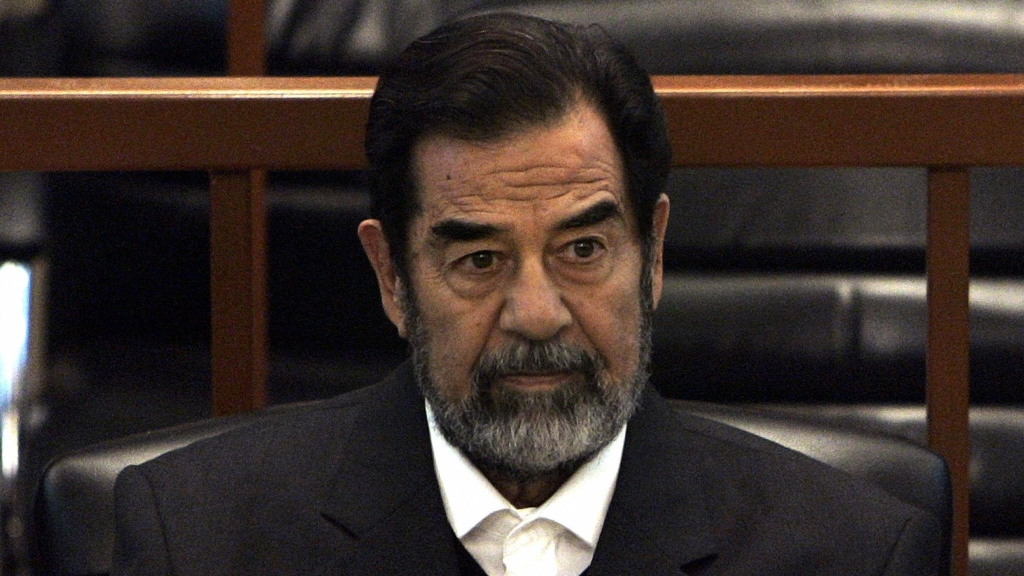
December 2006 Saddam’s execution
January 2007: US President George Bush announced a new strategy for Iraq, according to which thousands of new American soldiers would be sent to Iraq with the aim of strengthening security in Baghdad.
The United Nations says that more than 34,000 civilians were killed in violence during 2006. This number is three times more than the number announced by the Iraqi government.
February 2007: Hundreds were killed as a result of a bomb explosion in the Sadriyah market in Baghdad. It is the worst bombing since 2003.
March 2007: Extremist militants explode three trucks loaded with toxic chlorine gas in Fallujah and Ramadi, wounding hundreds of people.
April 2007: Bombings in Baghdad kill about 200 people in the worst violence in one day since the start of a security operation in Baghdad in February led by American forces.
August 2007: A truck bomb and bombs targeted two villages inhabited by Yazidi Kurds, killing at least more than 250 people in the worst deadly attack since 2003.
Shiite and Kurdish leaders formed an alliance with the aim of supporting Al-Maliki’s government, but they failed to convince the Sunnis to join this alliance.
Blackwater shooting and Turkish raids
September 2007: Controversy over the status of Blackwater security guards over reports that they shot Iraqi civilians in Baghdad, resulting in the deaths of 17 Iraqis.
October 2007: The number of civilian and military deaths continues to decline and rocket attacks decline.
December 2007: British forces hand over security duties in Basra Governorate to Iraqi forces, which puts an end to about five years of British military presence in southern Iraq.
January 2008: The Iraqi Council of Representatives issues legislation allowing former officials of the dissolved Baath Party of certain levels to return to holding public positions.
March 2008: Iranian President, Mahmoud Ahmadinejad, visits Iraq.
The Iraqi Prime Minister, Nouri al-Maliki, ordered confrontation of the Mahdi Army in Basra, which led to battles with the Mahdi Army of Mr. Muqtada al-Sadr.
September 2008: American forces handed over security duties in Anbar Governorate, western Iraq, which was a stronghold of insurgents and Al-Qaeda, to the Iraqi government.
The Iraqi Council of Representatives issues the provincial council election law. But the ongoing controversy over the status of the city of Kirkuk, whose sovereignty is disputed by both Kurds and Sunnis, so that local elections can be held in other places.
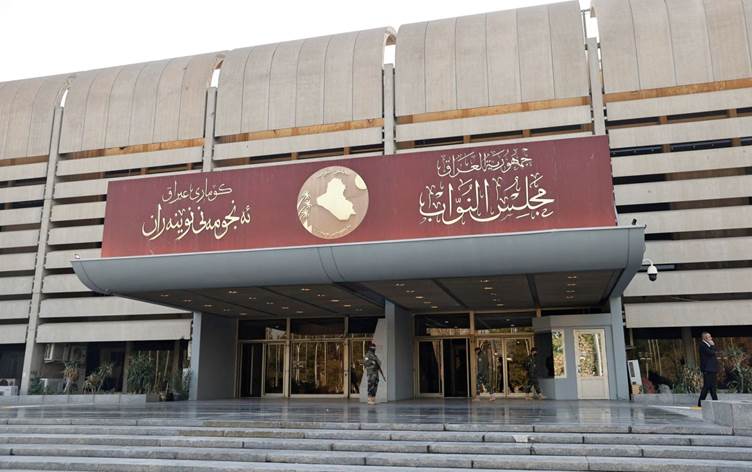
Approval of security agreements
November 2008: The Iraqi House of Representatives approves security agreements with the United States such that all American forces will leave Iraq by the end of 2011.
January 2009: Iraqi government forces take over security duties in the heavily guarded and fortified Green Zone, and are granted broader powers over foreign forces present in Iraq.
Al-Maliki welcomes this step as it embodies “Iraqi Sovereignty Day” over its lands.
March 2009: US President Barack Obama announces the withdrawal of most US forces from Iraq by the end of August 2010.
About 50,000 American soldiers out of a total of 142,000 soldiers will remain in Iraq until 2011 with the aim of training Iraqi forces and protecting American interests, and they will leave by the end of 2011.
June 2009: US forces withdraw from Iraqi cities and towns six years after the US-led invasion, after handing over security duties to Iraqi forces in official ceremonies.
New political formations
July 2009: New opposition forces achieved important gains in the elections in the parliament of the Iraqi Kurdistan region. The Kurdistan Democratic Party and its ally, the Patriotic Union of Kurdistan, did not maintain the majority they had previously achieved. Masoud Barzani was re-elected as president of the Iraqi Kurdistan region.
October 2009: Two car bombs exploded near the Green Zone in Baghdad, killing at least 155 people in the worst violence Iraq has witnessed since April 2007.
December 2009: The Al-Qaeda-linked ISIS in Iraq claimed responsibility for suicide bombings that killed at least 127 people, in addition to other attacks that occurred in August and October in which 240 people were martyred.
Tension arose with Tehran when Iranian forces briefly occupied an oil field on Iraqi territory.
January 2010: Controversy intensified in Iraq when candidates said to have links to the dissolved Baath Party were banned from running in parliamentary elections in March, but an Iraqi court later lifted the ban, leading to the postponement of election campaigns.
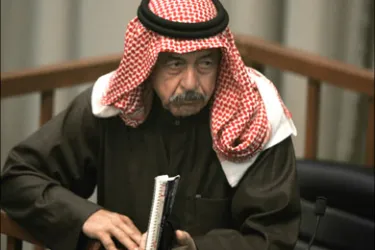
25 January 2010 The execution of Ali Hassan al-Majid, known as Chemical Ali, who was a key leadership figure in Saddam Hussein’s regime.
Inconclusive elections
March 2010: Although parliamentary elections were held this month, the Iraqi government was not formed until 9 months later.
August 2010: The last US combat division leaves Iraq, seven years after the US-led invasion.
September 2010: Syria and Iraq resume diplomatic relations after a year-long rupture.
October 2010: Armed men seized a church in Baghdad, killing 52 people in what was described as the worst single disaster to befall Iraqi Christians in the modern era.
November/December 2010: The Iraqi Parliament convenes after a long postponement and re-elects Jalal Talabani as President of Iraq and Nouri al-Maliki as Prime Minister. A new Iraqi government was formed that included all the major political formations in the country.
January 2010: The cleric, Muqtada al-Sadr, returns to Iraq after four years of self-imposed exile in Iran.
February 2011: Resumption of oil exports from the Kurdistan region of Iraq in light of a long dispute between the region and the central government in Baghdad regarding who has the right to conclude oil contracts with foreign companies.
April 2011: The Iraqi army raided Camp Ashraf, where thousands of Iranian refugees (Mujahedeen-e-Khalq) reside, leading to the killing of 34 people. The Iraqi government says it has closed Camp Ashraf.
August 2011: Violence escalated in Iraq, with more than 40 people martyred in one day due to coordinated attacks in different regions of Iraq.
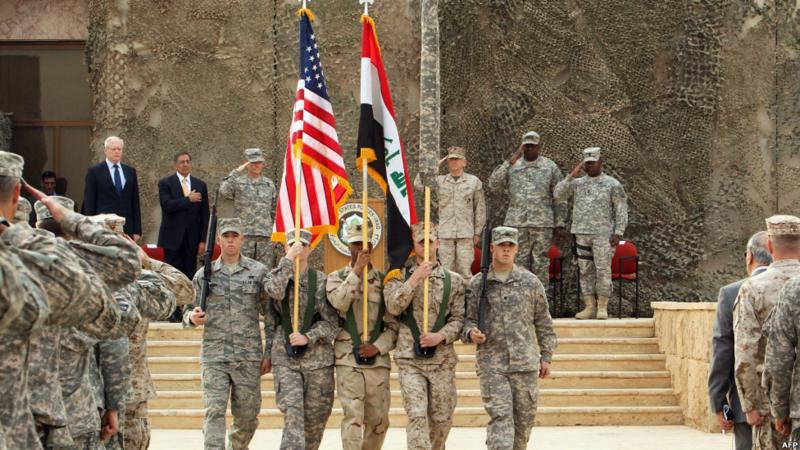
Withdrawal of American forces
December 2011: The United States completes the withdrawal of its forces from Iraq. The Iraqi coalition government faces chaos. An arrest warrant was issued for Vice President Tariq Al-Hashemi.
About 200 people were killed in bombings that targeted several areas following the withdrawal of American forces from Iraq.
March 2012: The Iraqi government imposed strict security measures on the occasion of the organization of the Arab Summit Conference in Baghdad, the first summit organized in Iraq after the fall of Saddam Hussein’s regime. Dozens were killed in a series of bombings in Iraq prior to the summit.
April 2012: Oil exports from the Kurdistan region of Iraq stopped due to a dispute with the central government in Baghdad regarding the extent of its right to conclude contracts with foreign oil companies.
November 2012: The Iraqi government canceled a contract worth $4.2 billion with Russia to purchase weapons from it, against the backdrop of allegations of corruption in government departments. The arms contract signed in October with Russia, if completed, would have made Moscow the second largest arms supplier to Iraq after the United States, noting that during the era of Saddam Hussein’s regime, Russia was the main supplier of arms to it.
Violence escalates
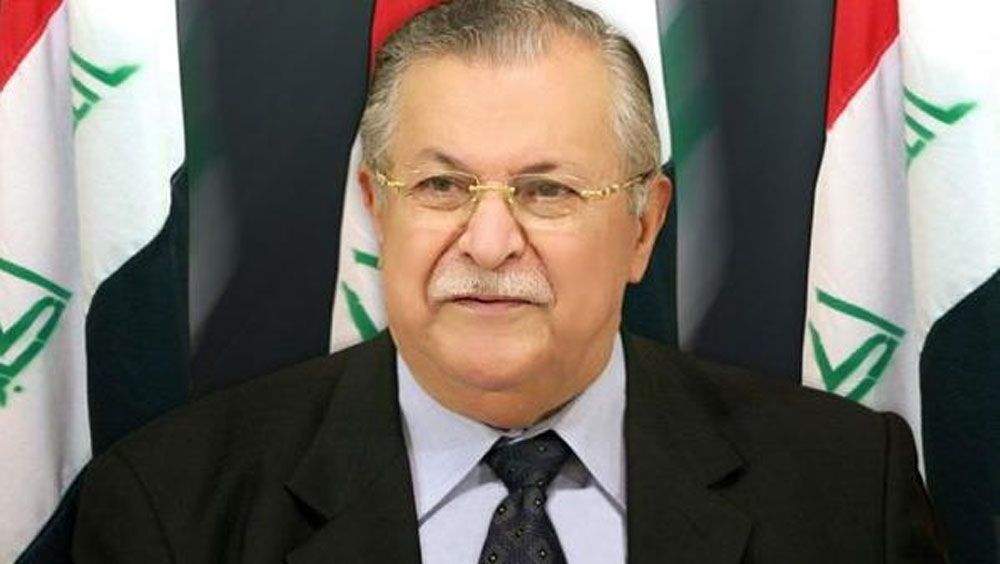
December 2012: President Jalal Talabani suffers a stroke and is transferred to Germany to receive treatment.
April 2013: Iraqi forces stormed the square where the demonstrators were camping, leading to anger and clashes in other towns.
Violence in Iraq has escalated to near 2008 levels. In July, Iraq was described as being on the verge of a real civil war.
September 2013: The fugitive Iraqi Vice President, Tariq Al-Hashemi, was sentenced to death by hanging on charges of involvement in murder. Al-Hashimi took refuge in Türkiye after being accused of running death squads.
July 2013: At least more than 500 prisoners, most of them prominent members of Al-Qaeda, escaped from Taji and Abu Ghraib prisons.
September 2013: Killings at Camp Ashraf, which houses Iranian refugees who are members of the Mujahedeen-e-Khalq organization. Legislative elections in Iraqi Kurdistan won by the Kurdistan Democratic Party with a comfortable majority. A series of bombings targeted the capital of the Kurdistan region, Erbil, which is the first attack on the region since 2007. The ISIS organization in Iraq, which is linked to Al-Qaeda, says it came in response to the Kurdistan government’s support for the Kurds fighting in Syria.
October 2013: The Iraqi government sets the date for parliamentary elections in April 2014.
The government says that October witnessed the worst wave of violence since April 2008, with 900 people martyred.
The United Nations says at the end of the year that its statistics indicate that the death toll reached 7,157, a significant increase over the previous year when the death toll was 3,238.
December 2013: Dozens of people were killed as a result of double bombings targeting churches in Baghdad during Christmas.
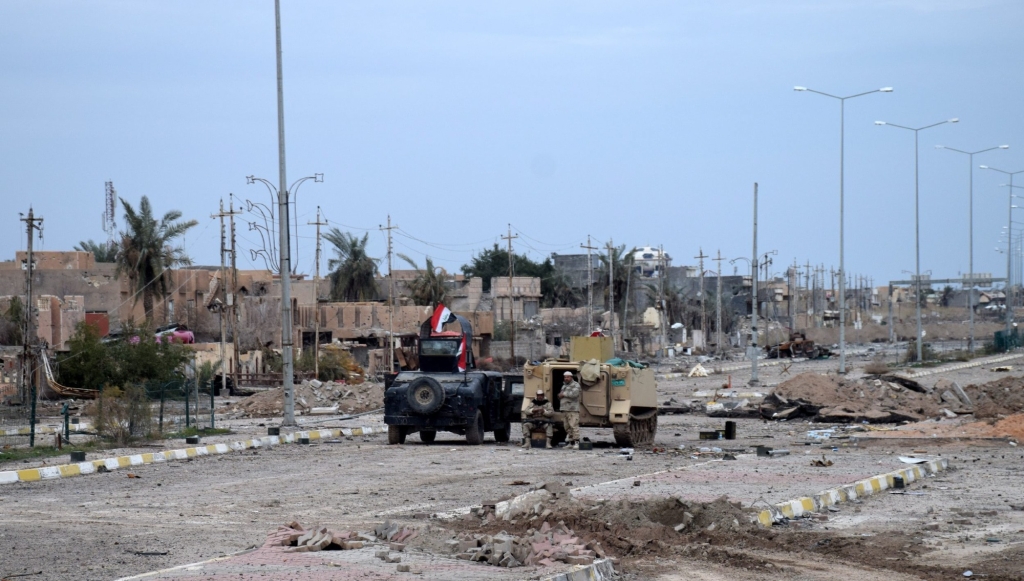
January 2014: Pro-Al-Qaeda militants from the Islamic State of Iraq and the Levant (ISIS) infiltrate the cities of Fallujah and Ramadi after months of escalating violence in Anbar Governorate. Government forces regain control of Ramadi

March 2014: Members of the Board of the Independent High Electoral Commission submitted their collective resignations in protest against political interference in its work ahead of the parliamentary elections scheduled for April 30, 2014, against the backdrop of allegations that the government is using a controversial legal provision to prevent its opponents from running in the elections on the grounds that they do not have the right to vote. “good reputation
10 December 2017 – The Special Representative of
the complete liberation of all of Iraq’s territory from the yoke of the Daesh terrorists
